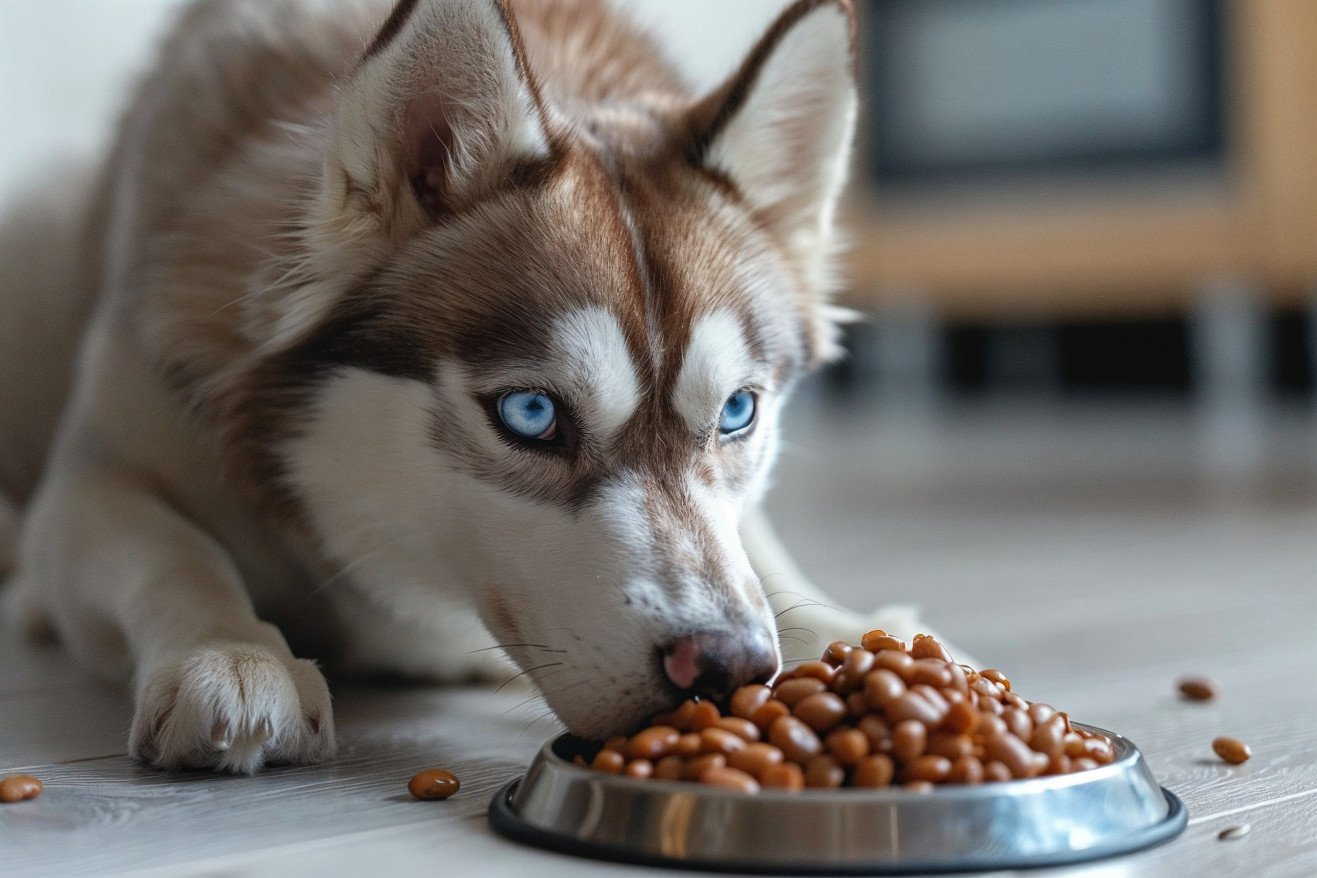Can Dogs Eat Kidney Beans? A Look at the Risks and Benefits
1 May 2024 • Updated 30 April 2024

Are kidney beans a good source of nutrition for dogs, or will they cause digestive issues? While kidney beans are not poisonous, they are hard for dogs to digest because they are high in protein and fiber. As a result, while cooked kidney beans can offer some nutritional value, they should not be a major part of your dog's diet.
This article will review the most recent findings from veterinarians and animal nutritionists to help you decide if kidney beans are safe for your dog to eat. By weighing the risks and benefits, you will be able to determine if and how kidney beans can be included in your dog's diet. This information will help you decide if kidney beans are a good addition to your dog's food bowl.
Can dogs eat kidney beans?
Kidney Beans Can Offer Some Health Benefits to Dogs
When given to dogs in moderation, kidney beans can actually be a great source of some important nutrients. As Purina points out, beans like kidney beans are high in fiber and protein. They also contain antioxidants that can help boost a dog's immune system and improve their overall health, according to Dr. Kevin Puzycki as cited by Rover.com.
Kidney beans are also a plant-based protein source, which can be especially important for dogs that are on vegetarian or vegan diets. They also contain important vitamins and minerals like iron, folate, and potassium, which are all mentioned by DogChild.co. The fiber in kidney beans can also help with digestion and ensure that dogs have regular bowel movements.
That said, it's important to note that these benefits are only applicable when kidney beans are given as an occasional treat that makes up no more than 10% of a dog's daily caloric intake, according to multiple experts. It's important to make sure that dogs are only eating kidney beans in moderation and as part of a balanced diet so that they can enjoy these benefits safely.
Risks and Side Effects of Feeding Dogs Kidney Beans
Raw kidney beans contain a lectin that can cause gastrointestinal upset, including vomiting and diarrhea, if ingested by dogs, according to Rover.com. Overconsumption of kidney beans can also cause digestive upset, including gas, bloating, and abdominal pain, because of their high fiber content, according to Purina.
In addition, kidney beans can cause food allergies or sensitivities in dogs, which can lead to skin problems, ear infections, and other issues, according to Rover.com and Dogs Naturally Magazine. Canned kidney beans often contain salt, preservatives, and other ingredients that can be toxic to dogs if consumed in large amounts.
To prevent health problems, it’s important to introduce kidney beans to your dog’s diet gradually and watch for any adverse reactions, according to several sources. It’s also important to make sure kidney beans are prepared properly and fed in moderation if you’re considering adding them to your dog’s diet.
How to Prepare and Serve Kidney Beans to Dogs
Kidney beans need to be cooked thoroughly before being given to dogs to remove any toxins or antinutrients, according to Recipes.net. To make sure the beans are safe for dogs to eat, it's best to soak them overnight and then boil them for at least 45-60 minutes.
If you're using canned kidney beans, you should drain and rinse them to remove any salt, preservatives, or other flavorings before giving them to your dog, per Pumpkin®. To avoid any digestive upset, it's best to introduce kidney beans to your dog's diet slowly, starting with a small amount and gradually increasing it.
Kidney beans should be no more than 10% of a dog's daily calories and should be fed in addition to a complete and balanced diet, according to Purina. It's important to prepare kidney beans properly and feed them in moderation if you're considering adding them to your dog's diet.
Can Dogs Eat Bean Sprouts?
Although kidney bean sprouts are safe for dogs to eat, they may still contain some lectin, which is toxic in large amounts, says MasterClass. Mung bean and soybean sprouts are better alternatives for dogs because they contain fewer toxins than kidney bean sprouts, according to Contemplate.
If you do give your dog kidney bean sprouts, make sure they are cooked to reduce the risk, according to Kate's K9 Pet Care. Because bean sprouts are high in fiber and can cause digestive upset, it's best to start with small amounts and only give them to your dog occasionally, says Dope Dog.
Always talk to your vet before giving your dog bean sprouts, especially if your dog has any health issues or food sensitivities, to make sure they are safe for your dog to eat.
Conclusion: Can Dogs Eat Kidney Beans?
According to Rover.com, kidney beans can be a healthy addition to your dog's diet as long as you feed them in moderation and as part of a well-rounded diet. That said, it's important to make sure that you cook kidney beans thoroughly to remove any toxins and to introduce them to your dog's diet gradually while watching for any negative side effects.
As Purina explains, kidney beans should never account for a large part of your dog's daily calories, and they should be used as a supplement to your dog's regular diet, which should be rich in protein. You should talk to your vet, especially if your dog has any underlying health issues or food allergies, before you start feeding your dog kidney beans.
Although kidney beans can offer some health benefits, it's important to consider the potential risks and drawbacks and to make sure that you're putting your dog's health and well-being first.


